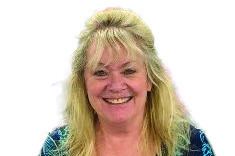“What is going to become of me?”
This question posed over and over again in conversations with senior adults who have expressed their fears and concerns during recent visits to the food pantry.
A 76-year-old widow provided this sentiment: “I’m so scared that I won’t be able to survive. I have trouble sleeping at night worrying about my days ahead. With all the changes going on that I never could have imagined, I do not know with any certainty if I can continue to keep a roof over my head or food on the table.”
An 85-year-old gentleman living alone gravely expressed: “In all of the many years of my entire life, and I have lived through all kinds of times when money was scarce and when money came easy, I have never felt so powerless. Everything like food and medicine costs more than I can afford. Prices keep going up. My income barely stretches enough now to cover all my bills and keep the truck running. I hear the news reports about Social Security changes in the works. Can they cut my benefits? Social Security is my only source of income.
“Friends tell me I have to get on a computer to stay eligible and communicate with them. I have never used a computer and I am not going to start now. I don’t understand what is going on. I have paid into Social Security since getting my first job at age 16 and figured it would pay out for me in retirement. I am deeply shaken.”
There is an old local saying that describes the specter of seniors facing new challenges being like observing an old mule looking at a new gate. I can say that I get it, and in my “senior-hood” status, I connect to the disorientation felt by the old mule. I can relate to feeling trepidation when looking at that vista ahead filled with chaotic unknowns, unchartered rules and standards, speculating about what the future holds. Right now, looking back on the good old days, my former past set of norms appeared much more civil, pleasant and palatable.
The proposed changes in guidelines for Social Security management have vacillated all over the place. Some newly introduced criteria have been scaled back or at least postponed, but it seems the momentum is moving forward to close field offices, drastically cut staffing and take away the option to use the phone for some communication purposes. Direct deposit updates will need to be made online or in person.
One area where many older adults feel challenged and left behind is navigating technology. I often turn to my children to rescue me when I am stopped in my tracks and hopelessly stuck in a puzzling computer crisis.
I anxiously break a sweat when learning how to operate new make-life-easier gadgets. Are smart home devices really making my life smarter? Do I really need Alexa to turn on my lamp, start the coffee pot, or announce to the household that it’s dinnertime?
I felt I had graduated to new heights when I finally figured out how to stream television programs without having a meltdown when the remote would not cooperate. These minor incidents take on an entirely new perspective if you consider that utilizing technology in relationship to maintaining Social Security status could be decisive in whether or not a person could pay their rent, buy their medicine, or basically allow them to survive.
There are many Social Security recipients, both in both elderly and disabled classes, who are not computer literate. Think about what is being imposed on those who have physical, mental, or cognitive conditions that impair their ability to engage in typical daily activities and interactions. Not every senior has the luxury of accessing extended family to provide assistance with communications.
It’s a no brainer to recognize that low-income persons likely cannot afford to buy a computer to take care of their critical Social Security account and transactions online. What choice do they have except to be required to visit an office in-person? Is their regional office going to remain staffed and open? Additional disadvantages include mobility barriers, expense, and difficulties arranging for transportation to get to regional office sites.
How is it acceptable to make it harder for our most vulnerable and struggling populations to be heard, to cope and continue? As the tide of policy shifts and uncertainties loom, many of our senior neighbors stand at the crossroads of fear and insecurity. They are not just numbers in a system but individuals whose lives, livelihoods and dignity depend on the stability of programs they have trusted. When the future feels uncertain, when fear whispers of scarcity and hardship, the greatest reassurance we can offer is the steady presence of a compassionate community. We can listen, stand firm in truth, and act with kindness.
We are not powerless against the forces of change. We can be a voice of reason in confusion, a hand of help in distress and a source of comfort in fear.
Janet Mills is the director of Cassville Pantry, located at 800 W. 10th St. in Cassville. She may be reached at cassvillepantry@gmail.com or 417 846-7871.






